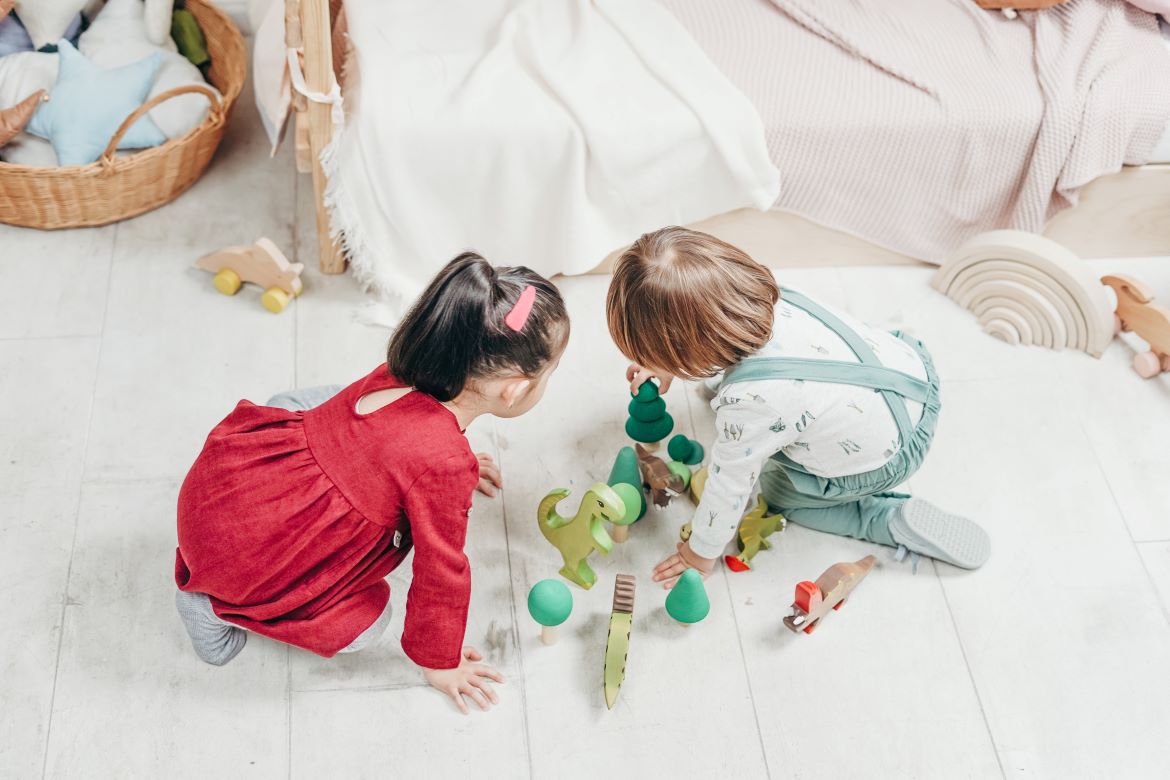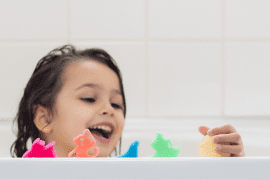By Tracy Cassels
One of the themes emerging in education nowadays is that play-based learning is what our young kids need. Most preschools nowadays will be clear that their philosophy is one of play-based learning and so parents can rest assured that their children are learning in a developmentally-appropriate manner.
But are they?
Too often, what parents imagine play-based learning to be and what it actually is may be quite divergent. Or even if parents imagine the same thing, the question of how helpful certain types of “play-based learning” is can be up for debate. I view most programs as being split into one of two types: child-led play-based learning and adult-led play-based learning. Arguably, most programs that are out there are adult-led play-based learning and I don’t believe these are truly beneficial to our kids, but let’s take a closer look as to why.
Child-led play-based learning
This is the ideal and could really just be called “kids learning through play”. This is the natural state of affairs for young children as their lives are built around play. A child who is exploring with playdoh is learning. A child who is driving a car through the mud is learning. There is so much for our kids to learn about the world and play enables them to learn much of what they need.
Crucially to the learning component, the child is active in deciding what they are learning and what they are interested in learning.
When the child sees that the ball drops down each time they let go, they may do it over and over as their curiosity about gravity is at play. They may not learn the term gravity, but the idea that things fall starts to consolidate in their mind. In learning, this type of motivation to learn is essential to us grasping and holding on to the ideas that we are taking in.
Think about your own life even as an adult – when you are forced to learn something someone else wants you to learn, you may pick up some of it, but it’s much harder than if you’re interested in something and actively seeking out the knowledge you want. Children are no different, but we seem to struggle thinking they are actually engaging in this effortful learning.
One of the problems that most people have is that kids’ learning doesn’t always look like learning in the way we’ve conceptualised it. Part of this problem is that young children aren’t as verbal as we might want them to be to share with us what it is that interests them. Even once kids are verbal, they may not be able to explain why they want to play a certain game or what component of this game interests them the most. This makes it hard for us to map these activities to the components of learning.
The second part of the problem is that we often forget that kids will learn what they want and need to learn when it becomes relevant. We don’t trust that kids actually may want to learn to read when they feel ready for it and know that it will provide them with something valuable. I do feel that a lot of this resistance in our adult mind comes from the way in which we were taught and the cultural ideas that tell us that kids are inherently lazy and won’t want to do anything unless forced.
Of course, this means that child-led play-based learning is on the decline.
Few places have enough trust in kids to learn, but we also have so much evidence on the importance of play to learning that we’ve moved towards the other type of play-based learning – adult-led.
Adult-led play-based learning
In our culture, we don’t trust children to learn as their brain is ready, but as I said, we know play is important. This has led most preschools or schools (at least in most Western cultures, though there are definite exceptions) to focus on adult-led play-based learning. In this model, there is still play and games and children spend time engaging in this, but what type of play they do and what lesson they are learning is dictated by the adults.
If you enter a preschool, you may see everyone gathering the children around a table to practise painting an animal. The educators are using the fun act of painting to help kids learn about this particular animal. Or you might see educational games being brought out to learn science facts or math facts. Kids are playing – some are likely even having fun! – but the child is no longer in charge of their education.
Most people will see no problem here, but I see a few I’d like to share. First, the whole notion of having to dictate what kids learn is based on the assumption that academic subjects – especially letter and number recognition – are central to a child’s development and necessary from a young age. Unfortunately, the development of the brain doesn’t really support that (though there are definitely kids who are actively interested in reading and writing early, but again if it is led by them, they’re showing you they’re ready) as the areas of the brain associated with social and emotional processing are what dominate the early learning years. This means that the things kids will be drawn to aren’t part of these academic subjects because that’s not the type of input the brain is looking for.












Such a great read! Your article perfectly captures how play-based learning promotes creativity, problem-solving, and social skills. It’s a valuable reminder of how essential play is for children’s growth and development.